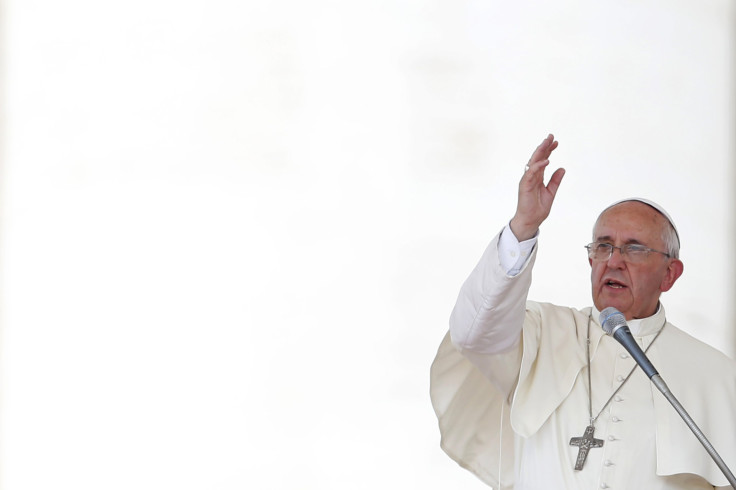Pope Francis Stands Against Legalization Of Marijuana And Other Recreational Drugs

One reason so many people applauded the Catholic Church for choosing ‘the first Pope of the Americas’ is an underlying belief he might bring a fresh perspective on the world, spirituality, and of course the church itself. And so it seems whenever Pope Francis discusses drug policy that his distinctly South American point-of-view is most evident. On Friday the Boston Globe reported the pontiff once again condemned the legalization of marijuana and other recreational drugs, based in part on a clearly intimate knowledge of the chaos wrought by drug cartels and the problems of addiction. "The scourge of drug-trafficking that favors violence and sows the seeds of suffering and death requires of society as a whole an act of courage," Francis told delegates to a drug-enforcement conference in Rome.
Born Jorge Mario Bergoglio in 1936, Francis is the first of five children born to Italian immigrant parents living in a barrio within Buenos Aires. Before joining the Jesuits, he worked as a bar bouncer, as a janitor, and as an employee in a chemical laboratory. When he was 33, he became an ordained priest and from there ascended within the ranks of the Catholic Church, named first a Bishop, then a Cardinal, and now Pope. In emulation of Saint Francis of Assisi, he chose his papal name.
The media generally emphasizes his Franciscan simplicity, popularizing, for instance, his choice to reside in a guesthouse rather than the formal papal apartments of the Apostolic Palace and to ride on the bus instead of in the ‘pope mobile.’ His garments are less grand and ornamental than those of his predecessors; he prefers simple white vestments, familiar wire-rimmed glasses, and the same crucifix from his days of service in Argentina. This humble appearance is not a hollow act by most accounts. Francis’ actions also reveal a sense of humility, as when he washed the feet of 12 disabled people during Easter Mass.
However, Francis has maintained a concurrent and unwavering conservative philosophy in matters of the church. He has upheld Catholic doctrine on contraception, abortion, and homosexuality, while adopting a zero-tolerance policy against sex abuse in the Church. He also demonstrates his traditionalist values when speaking of drug policy.
"A reduction in the spread and influence of drug addiction will not be achieved by a liberalization of drug use, as is currently being proposed in various parts of Latin America," Francis said while addressing the Roman conference on Friday. In particular, he referred to legislative acts legalizing recreational drugs as “highly questionable,” as reported by The Guardian, because they “fail to produce the desired effects.’’ The pontiff also noted providing addicts with drugs doesn’t solve the problem and is ‘‘rather a veiled means of surrendering to the phenomenon.”
As archbishop of Buenos Aires, Francis devoted a significant amount of his time and work to drug addicts and perhaps for this reason he speaks so passionately of the necessity "... to confront the problems underlying the use of these drugs by promoting greater justice, educating young people in the values that build up life in society, accompanying those in difficulty and giving them hope for the future." Forcefully, he concluded, ‘‘the problem of drug use is not solved with drugs!’’



























